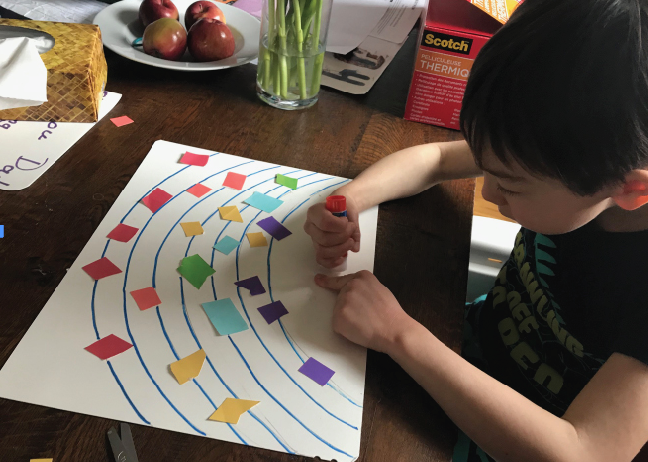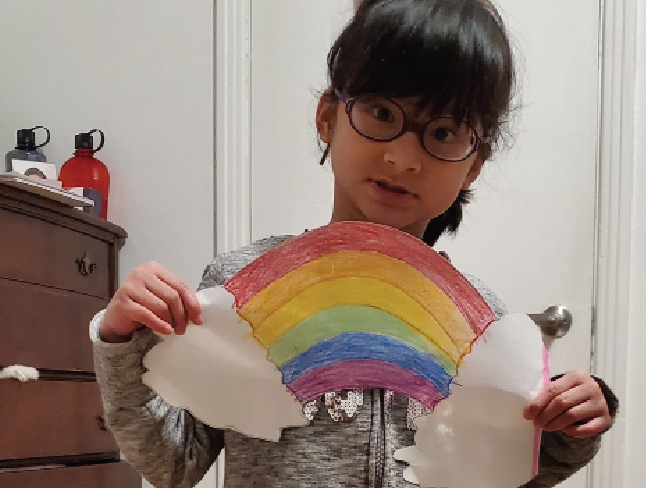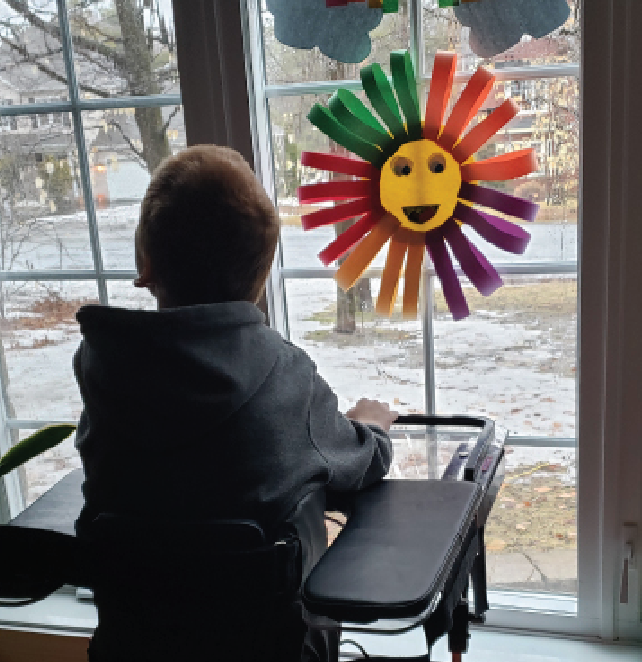Diffusing worries about COVID-19 for both parents and children

By Karla Dockery, Janet Perlis and Despina Vassiliou
With the COVID-19 health crisis, we have all experienced, and are experiencing major changes in how we live our daily lives. Active measures such as social distancing, self-isolation, and quarantines, all of which aim to reduce the spread of COVID-19, may trigger anxiety, panic, worry and fear. Other common reactions may also include:
- Social withdrawal
- Difficulty concentrating or sleeping
- Overexposure to media
- Feeling helpless or confused
- Hyper-vigilance to your health and that of family members
- Anger
- Feelings of loss or grief

Acknowledge and accept that some anxiety is normal. It is natural for us to have these feelings, but it is best to use coping strategies to help ourselves and our children through it. Discuss what is happening and the anxiety felt surrounding the pandemic. Here are some practical steps that you can take during this time:
Set up a routine
Routines build the expectation of what we need to do and what will happen next. Anxiety is usually fueled by the unknown; therefore, establish routines and schedules to help predict and ascertain what is to come.
- Wake up daily at the same time.
- Dress for school or work.
- Create calendar to map activities.
- Plan each day (e.g., include an attainable goal).
- Get the whole family involved with chores.
- Use the time to be productive, perhaps begin spring cleaning.
Stay connected with others

While we are encouraged to self-isolate and engage in social distancing, we can text, make phone calls and/or video-chat to maintain social connections with family members, friends and neighbours. Social connections allow for reassurance, comfort, and a sense of community. We are not alone.
- Schedule at least one phone call/video-chat each day.
- Chat about other things and not only COVID-19.
- Check on neighbours by phone.
- Offer to deliver groceries or provide social support to older individuals.
- Play online games with family and friends (e.g. Kahoot!).
Choose media options wisely
It is important to keep informed as the situation evolves on a daily basis. However, overexposure to the media may increase anxiety and a sense of loss of control.

- Limit intake of news (e.g., only see updates during 6 p.m. news broadcast).
- Avoid misinformation, by sticking to trusted sources to keep informed.
- Dedicate some media time to educational options (e.g., starfall.com pbskids.org) as part of your routine.
- Watch family-friendly comedies as humour is important.
- Use media to connect with others such as through Facetime, etc.
Highlight the good things that are happening around us
It is easy for us to solely focus on negative things that are happening around us, especially during challenging times. To help us retain a positive frame of mind, and to keep things in perspective, we should actively look for the positives around us.
- Highlight how people are helping each other out (e.g., getting groceries for elderly neighbours).
- There is more family time, which can include puzzles, treasure hunts, board games, etc.
- Create a gratitude journal.
- Remember: Your efforts are saving lives.
Self-care
Focusing on building your own resiliency is not being selfish. Do things that make you feel good and centered; thereby, increasing your ability to nurture your family. Although your typical activities may not be possible due to social distancing, you can find ways to adapt to the ‘new normal’.
- Outdoor activities: Connecting with nature can enhance mental strength. Activities can include walks, gardening, or birdwatching.
- Take "time-out" breaks to defuse stress; Listen to music, read, meditate/mindfulness, yoga, colour, or take a bath.
- Exercise: Even though gyms are closed, you can replicate the in-class experience by downloading work-out programs (dance, yoga, cardio) to follow at home using on-line apps and videos.
- Schedule time for yourself. Sometimes we need space, so prioritize a personal time.
When to seek help
It is important to recognize that while feelings of anxiety may be expected under these current circumstances, at times, these may be beyond what is expected. Common signs that you, your child, or teen may need help for their anxiety is that they demonstrate significant distress (e.g., crying, irritability) which interferes in daily activities (e.g., refuses to get out of bed, can’t concentrate). If these persist then it is time to reach out for help.
Where to seek help
A list of resources is available at www.emsb.qc.ca/emsb/community/education/health

Through these efforts we can help reduce our anxiety and the anxiety in our children; thus, decreasing the mental health impact of COVID-19.
Karla Dockery, Ph.D., Janet Perlis, M.Ed., and Despina Vassiliou, Ph.D., are school psychologists at the English Montreal School Board.









